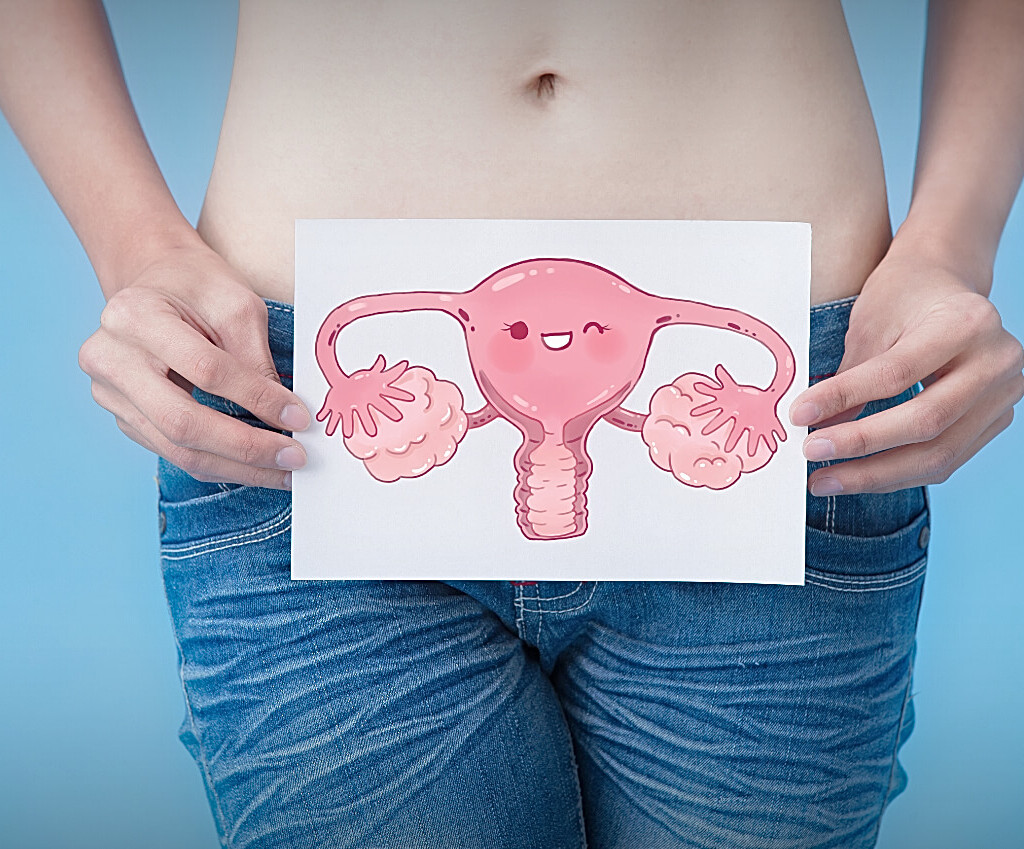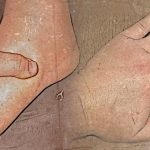The endometrium is one of the most important structures of the female uterus in the embryonic stage of life. It is a mucosa that covers the inside of the uterus which is composed of three different layers.
Endometrium and Endometriosis According to Biodecoding — Emotional Conflicts
The first is the functional layer which flakes off during menstruation and the second is the basal layer which is highly vascularized and is responsible for developing the functional layer after menstruation.
Endometrial biodecoding focuses on understanding the emotional conflicts that can manifest through symptoms in this tissue. If the uterus is the temporary home of the developing fetus, then the endometrium can symbolize the walls of that house.
The womb is the first home of the human being and, therefore, any problem in its proper functioning can have serious consequences in future life, especially with regard to the role of mother.
Conflicts related to this topic tend to have sexual and unpleasant connotations and are usually more frequent in relationships where the male figure plays a decisive role.
The loss of a child or the impossibility of having one can create strong resentment but it can also serve as an impetus to be stronger and fight for the future as a mother.
The uterus is not only important in emotional terms but it also has a fundamental biological function during the embryonic stage. This is where embryonic membranes form and where substance exchanges occur between mother and child which is essential to ensure adequate fetal development.
Endometriosis: Discover the emotional conflicts behind this disease
Endometriosis is a gynecological disease that affects millions of women around the world. It is characterized by abnormal growth of endometrial tissue outside the uterus which can cause severe pain, infertility and other symptoms.
According to experts, this condition is related to the embryonic stage of survival.
When endometrial tissue migrates outside the uterus, it marks your territory and workplace which can lead to emotional conflicts. Endometriosis is related to fear of childbirth or pregnancy, as well as to concern about not having a suitable place to receive a child.
Patients may feel that they have no right to have children or that they cannot have children in their own homes which can lead to resentment and negative emotions.
In this context, it is important to ask a key question to patients who have problems with the uterus or prostate: what are you thinking all the time, from the moment you wake up until you go to bed?
This question can help identify underlying emotional conflicts that may be contributing to endometriosis.
To better understand this disease, patients should imagine that they have problems with the walls of their houses which are very thick and are getting wider. It is at this time that they should reflect on any experience related to their house, their walls or their emotional desire to strengthen their home.
It’s important to recognize that “home” can mean different things to different people, from your physical home to your family and loved ones. In most cases, endometriosis is a combination of both aspects.
Endometriosis and Emotional Blocks: How Fear of Conception Affects Women’s Lives
The biggest emotional blockage that occurs in this disease is the impossibility of conceiving.
On many occasions, the woman who suffers from it is the type of person who directs everything in her life and feels capable of conceiving in other areas but the desire to have a child is frustrated by the fear of the consequences of childbirth.
The fear of dying or suffering too much during childbirth, as occurred in the case of her mother, is great enough to block the desire to have a child. However, all the possible answers that arrive at that time will be valid for locating the emotional conflict that is actually being experienced and that may be leading to the development of endometriosis.
Among the most common emotional conflicts is the desire to have children but feel that more time is needed to strengthen the marriage and have a more stable life. There is a fear of not feeling safe in the current house to start a family, either because it is not their own because the couple is not ideal or because the house is unsafe in its construction or size.
Another common emotional conflict is the fear that the womb won’t be strong enough to hold a baby, especially after one or more losses. In addition, the house can become a symbol of insecurity if there is a risk that it will collapse due to an earthquake or if there is an unpayable mortgage that could lead to losing it.
Endometriosis and its emotional implications
Your symptoms can range from menstrual pain and fatigue to fertility problems and pain during sex. But in addition to physical symptoms, this disease can also have emotional implications that need to be addressed.
When endometriosis affects the ovaries, it can lead to feelings of loss and frustration about the possibility of having children.
According to some approaches, the ovaries represent “lost children, deceased children” in the family tree. Therefore, it’s important for women with endometriosis to work on creating a strong and safe home for their future children.
In the bladder, it can cause fears about losing territory.
In this case, the territory can be interpreted in different ways, such as the couple, the right to be a mother and the right to have a home and start a family. Therefore, it’s important to address these fears and ensure that you have a safe and stable life.
When it affects the navel, it is related to a toxic mother or a family that interferes
In this case, it is important to establish clear and healthy boundaries with the family to avoid a negative influence on home and family life.
In the rectum, it can be related to toxic and negative relationships.
It’s important to work on overcoming these negative relationships and building a toxic-free home and family.
Finally, when endometriosis affects the uterine muscle, it may be related to fears of not being able to be a good mother or wife. It’s important to address these fears and work on self-confidence and building healthy relationships.
In short, endometriosis can have significant emotional implications that need to be addressed. It’s important to work on understanding and overcoming these fears and building a healthy and safe home and family life.
With the right help, women with endometriosis can overcome emotional obstacles and enjoy full and satisfying lives.
The uterus: a vital organ in human and mammalian reproduction and its emotional biodecoding
The uterus is a vital and symbolic organ in human and mammalian reproduction. In addition to being composed of a body, fundus and cervix that we can compare to a mouth, we also want to explore the biodecoding of the uterus and how emotional conflicts can affect it… read more»
Transform your emotional and spiritual life with a personalized tool
Discover the power of Biodecoding combined with Kabbalah. Through your Personal Kabbalistic Tree, designed based on your name and date of birth, you’ll receive a practical guide to work on your emotions and achieve holistic well-being.





